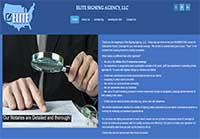Ten Tips to Help Choose an E-Commerce Solution
Here are ten key features to look for when choosing an e-commerce software package for a web store:
- Compatibility with Existing Resources: Setting up an e-commerce enabled Web site is a big enough task in itself, without having to make major changes to existing systems. So ensure that the product you choose is fully compatible with your existing hardware, Web server software and operating system. Most commerce servers support several operating systems, with UNIX and Windows NT being the most common, although some of the more mature products are available for UNIX only.
- Ability to Import Existing Data: If you already have a large product database, you need the ability to transfer this data easily to your Web store’s database. Most high end packages provide several methods of importing data, but this feature is often missing from entry-level packages and so all data has to be manually entered.
- APIs to Link to Legacy Applications: Linking your existing inventory management and finance systems to your commerce server is one of the most challenging aspects of setting up a Web store. If you intend to do this, APIs will allow programmers to write code that will link the commerce server with your legacy systems.
- Virtual Shopping Carts: By far the most common shopping model on the Web, virtual shopping carts enable shoppers to browse through a store adding or removing items at will, before finally going to the “checkout” and paying for the goods.
- Sales Tax and Shipping Cost Calculation: Often overlooked, this feature is a vital part of any good e-commerce software package. A significant proportion of orders in your Web store will come from international customers and shipping costs need to be calculated in real time. It is not good practice to simply include a note to the effect that international customers will have shipping costs notified to them by e-mail – customers want to know the total cost before placing their order. Select a solution that allows you to specify shipping costs with a great level of detail.
- Range of Payment Methods Supported: Although the majority of payments in Web stores are made through traditional credit card transactions, you need to be in a position to accept payment in as many ways as possible in order to maximize your sales. Choose a solution that supports a wide range of electronic and traditional payment methods.
- Construction Tools: Many e-commerce software solutions come with a number of standard store templates that can be readily customized, or include wizards to help build the store. It is much easier to create a store using these tools than it is to construct a store from scratch.
- Special Promotion Management: Once your store is built, you need the ability to run special promotions. You should be able to quickly change a price or be able to offer discounts for volume purchases or to special customers.
- Detailed Reporting: Often missing from entry-level packages, detailed reporting of customer activities in your store is vital. These reports will enable you to fine-tune your store in order to maximize sales.
- Remote Administration: Finally, once the store is set up you want to be able to administer it easily. Some e-commerce solutions allow this to be done via any Web browser and incorporate features such as the ability to point and click at a product in order to change properties such as pricing.









